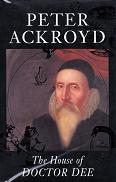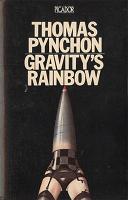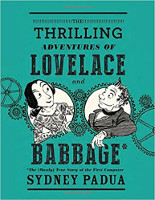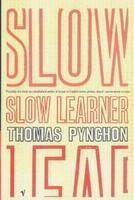 I was rather excited when I stumbled across The House of Doctor Dee by Peter Ackroyd whilst sheltering from a downpour in a Charity Shop in Bury St Edmunds. Peter Ackroyd is a writer (of biographies, fiction, children's books, and a play) that I greatly appreciate, and Doctor Dee a historical figure that I'm interested in. What could possibly go wrong with the combination of these two? Much, I have to report, to my disappointment; and not just that this is fiction, and not the biography I hoped it would be when I saw it on the shelf (but, at least this, is not really Peter's fault).
I was rather excited when I stumbled across The House of Doctor Dee by Peter Ackroyd whilst sheltering from a downpour in a Charity Shop in Bury St Edmunds. Peter Ackroyd is a writer (of biographies, fiction, children's books, and a play) that I greatly appreciate, and Doctor Dee a historical figure that I'm interested in. What could possibly go wrong with the combination of these two? Much, I have to report, to my disappointment; and not just that this is fiction, and not the biography I hoped it would be when I saw it on the shelf (but, at least this, is not really Peter's fault).
The book nominally tells the story of Matthew Park, a researcher into historical papers, who inherits a house in Clerkenwell from his father. When he moves in to the place to escape his mother he finds that the house affects his moods, his perceptions, and his grip on reality unduly. He sets out to discover more, and learns that the house used to be belong to Dr Dee, the 16th Century mathematician, astronomer, astrologer, occultist, navigator, and Queen Elizabeth's (in)famous astrologer and consultant.
In reality this is a fictionalised account of the final years of Dr Dee, which digresses greatly from the historical records. The book follows the two strands (modern times, and 16th century) as they slowly coalesce (I kid you not), with much more weight and focus on the pseudo-historical strand. Both are told in the 1st person, but only Dr Dee really comes to life, which mainly serves to outline how repulsive, selfish, and less than human (despite his reported human foibles) the learned man was (or, at least, is displayed here). Matthew's character is sketchy, and mainly comes across as weak, confused, embarrassing, and not in any semblance of control.
Overall I was not impressed with the book; here are a few examples of bits that didn’t work for me:
- at one point Dr Dee tells his history, in length, to a drunk in a pub; a rather curious excuse for a clumsy information dump
- there are frequent lengthy descriptions of travel routes in historical and modern London in the story. I guess this is interesting if you're holding a map from the respective period and want to follow where people go, but it mainly feels like filler showing off research for the book.
- He presents an interesting concept along the lines of "some people are of the city, are the city, were always part of it, connected to its history, which is still here and present in the right frame of mind", or "an eternal city for those who are trapped in time". A great idea, a great image - it's just a shame he doesn't really do anything with this…
- There generally are a lot of threads and fascinating topics, including some core concepts like the one above, which are not followed up or fleshed out, both by the writer or his characters
- He also purports some urban myths he must have come across during research (pre-historic ruins near the river if you follow the right branch in the Victorian Sewers, anyone?), but again does not follow up on them.
I frequently got the impression that he was trying to be Iain Sinclair, the other 'London Writer' – but failed to reach, in language, imagination, or immersion of the reader.
In short – a book by a great writer, on a fascinating topic, and with loads of interesting and stimulating ideas. Just a shame that it does not add up - this did not work for me; you're welcome to form your own opinion, of course.
Title: The House of Doctor Dee
Author: Peter Ackroyd
Reviewer: Markus
Reviewer URL: http://skating.thierstein.net
Publisher: Penguin
Publisher URL: http://www.penguin.com
Publication Date: 1994
Review Date: 100414
ISBN: 0140171177
Price: UKP 8.99
Pages: 277
Format: Large format paperback
Topic: History
Topic: Mysticism
More Peter Ackroyd













